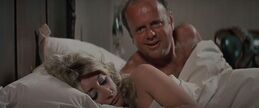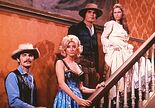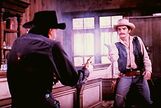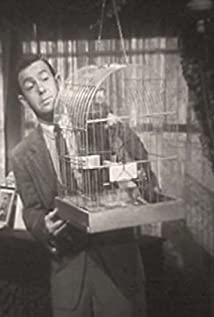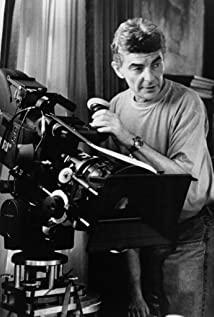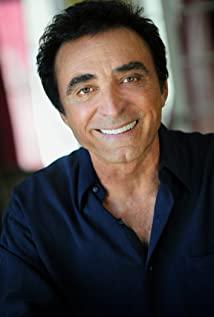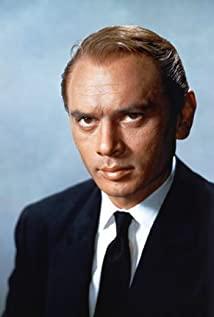"Westworld" is the hottest American drama of 2016. Before watching it, I heard people say that this is the most promising American drama to surpass "Game of Thrones".
The story takes place in a huge high-tech theme park, which is named Western World. The receptionists in the Western World were created by humans to provide tourists with the satisfaction of sexual desire and killing. However, what is surprising is that these high-tech products, receptionists, have gradually gained their own consciousness in the process of being forced to restart again and again in their lives. Compared with tourists who only know to satisfy their primitive instincts, they seem to be more humane.
Psychotherapists once said that betraying oneself is the beginning of growth. Of course, this betrayal does not mean treachery, but refers to the elimination of compulsory repetition and a genuine sense of independent choice.
Adults can judge right and wrong, advantages and disadvantages, and this is no different from receptionists in the Western World. The real difference is that the behavior and thoughts of the receptionist are controlled by the maker; while the behavior and thoughts of the adults are controlled by their own subconsciousness.
The so-called self-betrayal, for adults, is to understand why they choose this way when choosing. This "why" is not something on the conscious level, but something on the subconscious level. For example, why can't I be used to a certain type of people? Why do you always like a certain type of people when you choose someone? Why do you repeatedly dream of someone, something, a certain period of the past, etc.?
The subconscious affects people's behavior patterns silently, just like the receptionists in the western world whose behavior is controlled by the earliest personality codes. This process of betrayal is actually to slowly bring the things that were once hidden in the subconscious and not felt by oneself to the level of consciousness. Only at the level of consciousness, is it not fixed repetition, but independent choice.
The receptionists in the Western World, their self-betrayal, began in a certain memory of "pre-life". The receptionists killed by tourists will be repaired by the maker, and their memories will also be erased after the repairs. The manufacturer believes that these receptionists are just robots and will not have their own consciousness. Even if it is cold, love, pain, etc., these physical and emotional reflections are implanted by the code written by the maker.
However, since they had fragmented past memories, more and more memories about the "pre-life" began to emerge. Those memories are very painful. Because humans are killing wantonly in the paradise, and the receptionist is forced to undergo a "rebirth" after being killed. This kind of rebirth provides humans with a new object of venting.
They have experienced arbitrary destruction by human beings. The reason is just because they have no self-awareness, so they cannot resist. Humans can destroy them at will, but their brains have been implanted with instruction codes that cannot harm humans from the beginning.
In this unfair game, apart from deviating from the past, breaking the mandatory duplication of code, and gaining self-consciousness, there is no other way to get them out of purgatory on earth.
2.
The core of the receptionists created by Arnold is a tragic story. Arnold believes that the tragic core of the story is conducive to them getting the strongest creativity through memory after experiencing trauma, and thus the emergence of autonomous consciousness. This process can turn the receptionist (human machine) into a living human being. Because in the western world, the biggest difference between humans and humans and machines is that they do not have autonomous consciousness, so they are controlled by humans.
Based on this theory, Bernard rejected Maeve's request to clear the core of the sad story in his mind. Because this tragic story is the key to shaping her personality, and also the key to her betraying the past and growing into a new self. If it is cleared, she will no longer exist.
For this, there are also traces in psychological theory. I remember that when the psychotherapist talked about the theory of creativity, he used Jobs as an example, and pointed out that a person's creativity is related to the trauma he experienced in his infancy. It can be said that the more severe the trauma in childhood, the stronger the creativity of this person.
Of course, using this theory to make receptionists is risky. For people, creativity is only hidden in the subconscious. Some people, even if they have severe traumas in their childhood, may not have their creativity unearthed for a lifetime. Similarly, there are creative people who use their abilities in the wrong place. This point is also reflected in these receptionists. Although the receptionists created by Arnold have been implanted with sad story cores, not all of them are awakened and possess autonomous consciousness.
The process of getting creativity into play is painful. These receptionists died in the paradise over and over again, and left incomplete memories. These memories will be triggered by similar situations after rebirth. And because of their particularity, these memories will continue to become clear with the pain, and then deepen the previous pain. This pain caused them to step into the maze. They could not find the center of the maze. Although they can live a normal life, they cannot escape this controlled situation.
Arnold believes that the process of growing up is like walking through a maze. In the maze, "I" knows who I am, but the core of the maze is who "I" can be. To find this core, you must face your true self, that is, the self in the core story of each receptionist. Only by facing it can we say goodbye. Only by saying goodbye to your past self can you truly grow and have the ability to think independently.
3.
As Arnold's former partner , Robert once believed that it is impossible for a receptionist to have an autonomous consciousness and become a living human. Until the appearance of "contemplation", his thoughts finally changed.
He told Bernard that he did not agree with Arnold's previous theory, but when he agreed, he found that Arnold did not have the ability to change, but he did. He knows that real change will take time.
In time, the receptionist "restarted" again and again in the park. The constant rebirth of identities and the past makes their memories of painful events deeper and closer to the center of the maze.
Robert believes that humans are not tolerant, especially when they know that new species appear, they will instinctively purify. Because as early as tens of thousands of years ago, Homo sapiens (the ancestors of existing humans) had eaten Neanderthals. In order to give the receptionist enough time to "wake up", he participated in the adaptation of the new story.
On the surface, it was Maeve who had self-consciousness, fleeing, and choosing partners. In fact, from the final curtain call, it is not difficult to find that this is a story carefully arranged by Robert in order to wake up their consciousness. The story brought the receptionists close to the center of the labyrinth again and again, and also allowed them to break through the previous model and get a real change in the constant self-searching.
Until the end, from the smiles of Robert and William, we saw these receptionists "waking up" one by one and becoming immortal "people".
The existence of Westworld Paradise is essentially a hell on earth. There, people will not be punished by law for indulging desires. This paradise has degraded the individual "human". Because the biggest difference between humans and animals lies in the constraints of consciousness and morality. In the western world, animal instincts have been released to the greatest extent. People have lost their humanity, but the receptionist has "humanity" instead.
Quantitative changes produce qualitative changes. Death and rebirth make the memory of the receptionist continue to reappear. The longer the time, the more compulsive repetition, and the more thorough the final change. Robert guarded this process of transformation, allowing them to achieve self-betrayal. What they betrayed is unconscious repetition. When the unconscious becomes conscious, all actions are no longer repeating the past, but making independent choices. And independent choice is precisely the first step in growth.
View more about Westworld reviews



